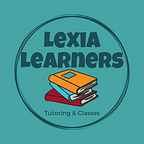Delayed Dyslexia Diagnosis: It’s Never Too Late
Dyslexia is a learning difficulty that affects people of all ages. Just as with other learning disabilities, which I prefer calling a learning difference, early detection and early intervention are beneficial. However, this is not always the case with dyslexia.
The Reason Why Many Dyslexics Are Left Behind
Most of the time, dyslexia is overlooked, which is the reason why a lot of people are only diagnosed during adulthood. One sad reality is when a child has not yet learned to fluently read by the age of ten or eleven years, he or she would be often thought of to be lacking in motivation or intelligence rather than digging deeper to determine what the root cause is.
Most people would think that they are stupid or lazy. However, in most cases, they are neither of the two. Rather, there is a high possibility that they have dyslexia which is a learning difference that causes their difficulty in understanding words — written language and hearing or communicating words, even though they have normal or even higher-than-normal IQ.
Faulty Wiring And Early Detection
Recent studies show that dyslexic people’s difficulties in reading are due to a “faulty wiring” in specific brain areas that have a relation to learning and language. Research also shows that identifiable genetic variations or defects are the partial cause of this.
In order for a dyslexic to have appropriate and timely remedial training, early screening and detection for such variations are really essential. Most experts suggest that children should be taught appropriately in order to overcome such struggles and at least learn how to read at an acceptable level. However, since dyslexia is sometimes only diagnosed during adulthood, the benefits of early detection are not maximized.
Late Detection
Although there are people who only become dyslexic during their adulthood due to stroke and traumatic brain injury, in most cases, dyslexia is genetic. According to experts, still, the majority of cases reported of people with dyslexia are grown-ups who have had it ever since childhood but only knew they had it when they were already adults. That was the case for my husband and myself.
This late detection of the condition is something most adult dyslexics are troubled with since early intervention is obviously no longer an option. However, if you are one of those who had late detection, it is not too late. Intervention, no matter how early or late, is still intervention, even though they may have varying results. I have worked with many older students who have experienced major improvements. We had two 18-year-old students who read at 3rd grade reading levels when we started working with them, but in less than two years, they were already reading at an 8th or 9th grade reading level.
Brain Plasticity and Its Role in Intervention
Research shows that younger people or even animals have a more elastic brain than older counterparts. The relevance of brain plasticity is that it is one important factor in relation to intervention.
Since the brain is more elastic when a person is younger; rewiring of the brain is easier, since it has not reached its mature state and continues to develop. Thus, in case a learning disability like dyslexia is present, then the brain can still be developed to function at a more acceptable level, where the condition has minimal effect.
A lot of adults recently diagnosed with the condition fear that intervention would do them no good, simply because their brain is not as elastic anymore as children’s. However, recent studies show that the brain’s property of elasticity is still present even with adults. I taught my husband for 18 months when he was 47 years old and he improved four reading levels in that time.
This recent finding on an adult brain’s plasticity is a breakthrough for adult dyslexics. So, if you are an adult that had a late diagnosis, then be happy! There is still hope for improvement, even if only to an acceptable level. It’s never too late!
